What Does Freedom of Expression Mean to You?
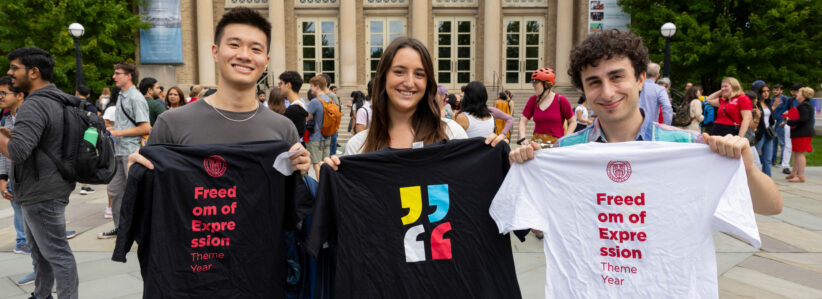
The theme for the academic year is The Indispensable Condition: Freedom of Expression at Cornell. Graduate students are joining the discussion by sharing their thoughts on what freedom of expression means to them.
Respond to the question of what freedom of expression means to you through the Qualtrics link in the Graduate School News and Events newsletter, and your answer could be featured!
What freedom of expression means to me…
…intellectual exploration without self-censorship.

“Freedom of expression means freedom for intellectual exploration without the pressure to self censor in order to conform to social norms and expectations. A free academic environment requires intentional effort to overcome barriers that might prevent some people from expressing themselves fully and authentically.”
Hana Barrett, plant pathology and plant microbe biology Ph.D. student
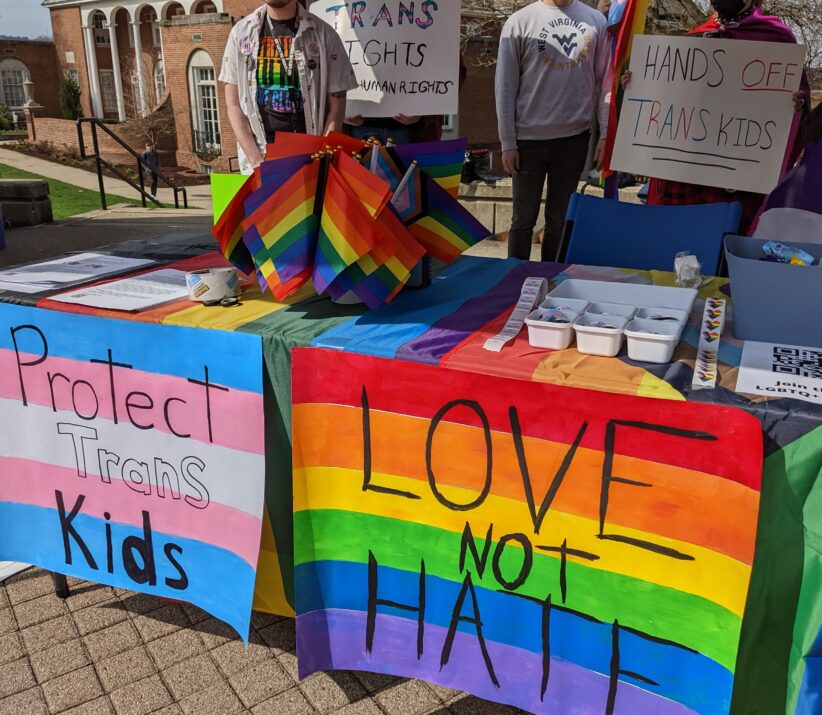
…a space where everyone feels supported and accepted
 “Freedom of expression is vital in academia and science because everyone deserves a space where they feel supported and accepted. We are often taught about academic freedom, and how crucial is to preserving the authenticity of research. Less often do we hear about freedom of expression. Science is home to a wonderful group of diverse, creative, and independent minds, and to limit their expression would be to limit their potential as a scientist and as a human. Protecting freedom of expression for the increasingly diverse scientific community is paramount to pushing research limits and furthering science for generations to come.”
“Freedom of expression is vital in academia and science because everyone deserves a space where they feel supported and accepted. We are often taught about academic freedom, and how crucial is to preserving the authenticity of research. Less often do we hear about freedom of expression. Science is home to a wonderful group of diverse, creative, and independent minds, and to limit their expression would be to limit their potential as a scientist and as a human. Protecting freedom of expression for the increasingly diverse scientific community is paramount to pushing research limits and furthering science for generations to come.”
Megan Driscoll, chemistry and chemical biology Ph.D. student
…sharing, adjusting, and improving ideas and beliefs
 “Lacking the freedom of expression won’t change anybody’s mind; rather, it will just keep ideas and beliefs internalized. Freedom of expression allows us to share ideas and beliefs, adjust and correct them, and make improvements.”
“Lacking the freedom of expression won’t change anybody’s mind; rather, it will just keep ideas and beliefs internalized. Freedom of expression allows us to share ideas and beliefs, adjust and correct them, and make improvements.”
Daniel Molitor, information science Ph.D. student
…creating inclusive communities that embrace uniqueness
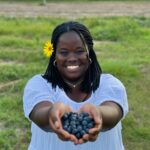 “At the Dean’s welcome during my orientation, president Pollack mentioned she hopes this year’s theme will tie into Cornell demonstrating how a diverse society that prioritizes free expression can thrive. To me, “freedom of expression” in this case refers to creating inclusive communities where individuals from diverse backgrounds, perspectives, and abilities are encouraged to embrace what makes them unique. This is lacking in STEM and especially in agriculture. Science is sterile, repetitive, and uniform, but scientists should not be – and we are only better scientists when we work with others whose experiences are different from our own and make space for historically underrepresented groups.”
“At the Dean’s welcome during my orientation, president Pollack mentioned she hopes this year’s theme will tie into Cornell demonstrating how a diverse society that prioritizes free expression can thrive. To me, “freedom of expression” in this case refers to creating inclusive communities where individuals from diverse backgrounds, perspectives, and abilities are encouraged to embrace what makes them unique. This is lacking in STEM and especially in agriculture. Science is sterile, repetitive, and uniform, but scientists should not be – and we are only better scientists when we work with others whose experiences are different from our own and make space for historically underrepresented groups.”
Faith Twinamaani, horticulture M.S./Ph.D. student
…a chance to learn and engage with others
 “Freedom of expression ranks very high on my list of things I would want to establish in my ideal world. It’s also a chance to learn; being free to express also gives you an opportunity to engage with others on ideas that you or they have presented. To me, that’s one of the core components of scholarly work.”
“Freedom of expression ranks very high on my list of things I would want to establish in my ideal world. It’s also a chance to learn; being free to express also gives you an opportunity to engage with others on ideas that you or they have presented. To me, that’s one of the core components of scholarly work.”
Arvid Samuelson, human development Ph.D. student
…true self-expression
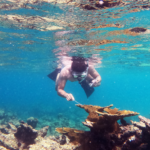
“As a Latino and gay man, valuing freedom of expression is paramount, despite feeling constrained at times. While it’s an essential goal, daily U.S. government policies raise concerns about expressing myself freely, seemingly reserved for specific races and sexual orientations. Coming from an island colonized by the U.S. adds complexity, making self-expression challenging without seeming ungrateful. Yet, true expression remains inaccessible for those oppressed, combating the idea that they’re lesser due to race or sexual orientation, often working doubly hard for equal opportunities. The struggle persists, highlighting the urgency to dismantle systemic barriers and embrace genuine freedom of expression for all.”
Brayan Vilanova Cuevas, microbiology Ph.D. student
…an environment that welcomes perspectives and creates belonging
 “As a scholar and instructor, I aim to create an environment in which a diversity of perspectives is amplified and celebrated. When considering this year’s theme of freedom of expression, this is what comes to mind—creating an environment in which diverse perspectives are welcomed and a sense of belonging is felt by all.”
“As a scholar and instructor, I aim to create an environment in which a diversity of perspectives is amplified and celebrated. When considering this year’s theme of freedom of expression, this is what comes to mind—creating an environment in which diverse perspectives are welcomed and a sense of belonging is felt by all.”
Kristie LeBeau, development sociology Ph.D. candidate
…not losing employment if parts of a statement are twisted
 “It means that I won’t lose my job if someone purposely ignores operative parts of my statement in order to invent statements that don’t represent my views and then publicly harasses me for it.”
“It means that I won’t lose my job if someone purposely ignores operative parts of my statement in order to invent statements that don’t represent my views and then publicly harasses me for it.”
Marguerite Pacheco, biomedical engineering Ph.D. candidate
…a place where identities and speech are acknowledged and heard

“I am a lawyer from Taiwan, and my current roles involve researching and teaching psychological-legal issues within marginalized populations, such as children and the incarcerated. I firmly believe that freedom of expression is essential, especially when it comes to addressing issues that often go unnoticed by mainstream sources. I believe everyone should be in an environment where their identities and the speech stemming from those identities are acknowledged and heard, and their stories hold significance.”
I-An (Amy) Su, human development doctoral candidate
…allowing for differing opinions to be voiced and heard
 “To me freedom of expression is about allowing for differing opinions to be voiced in good-faith. It’s important for an academic community, as well as a democratic society, to be able to discuss challenging issues in a way that allows a range of viewpoints to be heard.”
“To me freedom of expression is about allowing for differing opinions to be voiced in good-faith. It’s important for an academic community, as well as a democratic society, to be able to discuss challenging issues in a way that allows a range of viewpoints to be heard.”
Travis Lloyd, information science doctoral student
…never being afraid to genuinely be yourself

“For me, it means to never be afraid to genuinely be yourself. I believe an important part of thriving is just being yourself and trying to not worry about what others think of you. Don’t be afraid to speak up and be creative. I believe this is also a fundamental component of doing impactful research.”
Leah Lackey, electrical and computer engineering doctoral student
…being able to pursue and embrace new ideas
 “A big part of freedom of expression for me is to pursue new ideas, especially in an academic environment. I think I felt this freedom by heart when starting this project because as soon as this was started, people from both industry and academia reached out to me to talk about how there has always been a need for someone to take the initiative and how much this is needed for the field and I’m happy I did it. It feels like I took a step forward toward this year’s theme to feel free and fearless to embrace new ideas.”
“A big part of freedom of expression for me is to pursue new ideas, especially in an academic environment. I think I felt this freedom by heart when starting this project because as soon as this was started, people from both industry and academia reached out to me to talk about how there has always been a need for someone to take the initiative and how much this is needed for the field and I’m happy I did it. It feels like I took a step forward toward this year’s theme to feel free and fearless to embrace new ideas.”
Mehrnaz Sabet, information science doctoral candidate
…pursuing passions and representing oneself authentically
 “To me, freedom of expression is having the ability to pursue passions and represent oneself authentically, without fear.”
“To me, freedom of expression is having the ability to pursue passions and represent oneself authentically, without fear.”
Zoe Atkins, food science and technology doctoral student
…having the right to say and think things without fear of punishment
 “People have the right to say and think things without fear of punishment. That ideas are held sacred. We beat bad ideas with better ideas not with ad hominem attacks.”
“People have the right to say and think things without fear of punishment. That ideas are held sacred. We beat bad ideas with better ideas not with ad hominem attacks.”
Daniel Sabey, economics doctoral student
…the right to articulate one’s ideas, convictions, and insights fearlessly

“To me, freedom of expression represents the right to articulate one’s ideas, convictions, and insights fearlessly. At an academic institution like Cornell, it means the cultivation of a space where varied perspectives are encouraged, examined, and disseminated openly. As a Ph.D. student, this freedom empowers me to investigate and share results, like my research papers from 2023, even if they counter established beliefs. Ultimately, freedom of expression fuels creativity, advancement, and a dynamic scholarly community.”
Hongrui Wang, horticulture doctoral candidate
…exploring academic interests while challenging worldviews
 “For me, freedom of expression in academia means having the ability to explore my academic interests while challenging Western worldviews. As an Onʌyoteˀa•ká• (enrolled member of the Oneida Nation of Wisconsin) and Onöndowa:ga:’ (Tonawanda Band of Seneca) scholar, this idea is inherently important to me. This year’s theme will be apparent throughout my research as I highlight Indigenous ways of knowing in the fields of ecology and evolution and entomology, while simultaneously addressing how settler colonialism has impacted these fields.”
“For me, freedom of expression in academia means having the ability to explore my academic interests while challenging Western worldviews. As an Onʌyoteˀa•ká• (enrolled member of the Oneida Nation of Wisconsin) and Onöndowa:ga:’ (Tonawanda Band of Seneca) scholar, this idea is inherently important to me. This year’s theme will be apparent throughout my research as I highlight Indigenous ways of knowing in the fields of ecology and evolution and entomology, while simultaneously addressing how settler colonialism has impacted these fields.”
Cheyenne Reuben-Thomas, ecology and evolutionary biology doctoral student
…the conscious fostering of tolerance for diverse and opposing views
 “Expression can truly be ‘free’ only in an environment that consciously fosters tolerance for diverse and opposing views. It does not mean, however, freedom from consequences for baseless or misleading characterizations made under the banner of free expression. Radical assertions developed from a carefully curated set of facts while resolutely disregarding reasonable competing perspectives should generally be protected as free expression, even though such views are the antithesis of reasoned debate and higher education. Freedom of expression requires a community commitment, though individuals remain personally accountable for how they choose to exercise that freedom.”
“Expression can truly be ‘free’ only in an environment that consciously fosters tolerance for diverse and opposing views. It does not mean, however, freedom from consequences for baseless or misleading characterizations made under the banner of free expression. Radical assertions developed from a carefully curated set of facts while resolutely disregarding reasonable competing perspectives should generally be protected as free expression, even though such views are the antithesis of reasoned debate and higher education. Freedom of expression requires a community commitment, though individuals remain personally accountable for how they choose to exercise that freedom.”
Brian Cox, law doctoral candidate
…presenting who I am without fear of repercussions or persecution
 “To me freedom of expression means that I am allowed to present who I am, as well as my thoughts and ideas, without there being any fear of repercussions or persecution. Everybody is different and not everyone will agree with you or like you, and that is OK. What’s important is that self-expression not be confined to whatever is politically popular at the moment. People are multifaceted and it takes time to know what is really in a person’s heart. Being free to express oneself and having others willing to listen without immediate judgement is important for a healthy society.”
“To me freedom of expression means that I am allowed to present who I am, as well as my thoughts and ideas, without there being any fear of repercussions or persecution. Everybody is different and not everyone will agree with you or like you, and that is OK. What’s important is that self-expression not be confined to whatever is politically popular at the moment. People are multifaceted and it takes time to know what is really in a person’s heart. Being free to express oneself and having others willing to listen without immediate judgement is important for a healthy society.”
Derek Berman, geological sciences doctoral student
…participating in conversations across social circles and ideologies
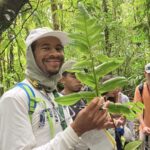 “In the various social circles and academic settings I’ve experienced, there tends to be a recurring echo chamber of ideas. Freedom of expression, in my view, involves participating in conversations across diverse social circles with varying ideologies. The aim is not necessarily to debate, but rather to listen and broaden one’s own understanding. This process enables individuals to express their thoughts more coherently and expressively—whether in a classroom, at a cafe, or while chatting with a stranger on the subway. The ultimate goal is to contribute to the development of a vibrant and informed society that values and listens to all voices.”
“In the various social circles and academic settings I’ve experienced, there tends to be a recurring echo chamber of ideas. Freedom of expression, in my view, involves participating in conversations across diverse social circles with varying ideologies. The aim is not necessarily to debate, but rather to listen and broaden one’s own understanding. This process enables individuals to express their thoughts more coherently and expressively—whether in a classroom, at a cafe, or while chatting with a stranger on the subway. The ultimate goal is to contribute to the development of a vibrant and informed society that values and listens to all voices.”
Josh Felton, plant biology doctoral student
…the ability to speak, think, act, and express oneself without fear
 “To me, freedom of expression means the ability to speak, think, act, and express oneself without fear of retaliation. This doesn’t mean that there’s a lack of dialogue or disagreement. Particularly in such partisan environments, I think that we sometimes tend to over-correct and believe that everyone must come to a consensus, but that’s not necessarily true. Freedom of expression challenges us to be able to hold multiple thoughts or feelings at once, oftentimes when they’re very much opposed to our own, and continue to be able to respect and value that other individual.”
“To me, freedom of expression means the ability to speak, think, act, and express oneself without fear of retaliation. This doesn’t mean that there’s a lack of dialogue or disagreement. Particularly in such partisan environments, I think that we sometimes tend to over-correct and believe that everyone must come to a consensus, but that’s not necessarily true. Freedom of expression challenges us to be able to hold multiple thoughts or feelings at once, oftentimes when they’re very much opposed to our own, and continue to be able to respect and value that other individual.”
Avery Sirwatka, public health master’s student
…the ability to make connections between literatures and ideas
 “Freedom means the ability to make connections between literatures and ideas spanning continents and centuries. Freedom also most importantly means to me the ability to critically revisit the narratives we have surrounding 20th century geopolitics, development, colonialism, and independence precisely in order to trace continuities (in situation, in attitudes) with the present.”
“Freedom means the ability to make connections between literatures and ideas spanning continents and centuries. Freedom also most importantly means to me the ability to critically revisit the narratives we have surrounding 20th century geopolitics, development, colonialism, and independence precisely in order to trace continuities (in situation, in attitudes) with the present.”
Amber Bal, romance studies doctoral candidate
…challenging our perceptions and understanding diverse perspectives

“The culture of Cornell is rooted in so many different identity groups. The freedom to express ideas and emotions is key to challenging our own perceptions and understanding diverse perspectives.”
Henry Williams, mechanical engineering doctoral student
…the ability and genuine desire to share goals, challenges, and fears
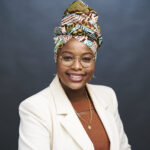 “Affording me the ability and genuine desire to share my goals, challenges, and fears, all while not being stigmatized for beliefs that are a product of my individual life experience. The courage to ask for help with ambitions that I am passionate about.”
“Affording me the ability and genuine desire to share my goals, challenges, and fears, all while not being stigmatized for beliefs that are a product of my individual life experience. The courage to ask for help with ambitions that I am passionate about.”
Cátia Dombaxe, biomedical engineering doctoral candidate
…essential to establishing a diverse and inclusive community
 “I firmly believe that to establish a diverse and inclusive community, freedom of expression is one of the conditions that must be met. Intellectual diversity is key in the pursuit of academic excellence, and all perspectives should be heard (even those who we may strongly disagree with) if we want to achieve this purpose. One of the greatest virtues of this country is the First Amendment. Only when we learn to listen and respect each other’s perspectives can we develop into individuals who can contribute to society through free objective inquiry.”
“I firmly believe that to establish a diverse and inclusive community, freedom of expression is one of the conditions that must be met. Intellectual diversity is key in the pursuit of academic excellence, and all perspectives should be heard (even those who we may strongly disagree with) if we want to achieve this purpose. One of the greatest virtues of this country is the First Amendment. Only when we learn to listen and respect each other’s perspectives can we develop into individuals who can contribute to society through free objective inquiry.”
Jesus Lopez Baltazar, chemical engineering doctoral candidate
…central to building trust
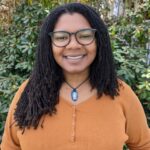 “We grow best when exposed to new ideas, perspectives, and approaches. As scientists, we must identify and address the challenges facing our world. This cannot adequately or effectively be achieved without identifying or understanding the problem. Our stakeholders need to feel that they can be truly honest and open about their circumstances even if it is uncomfortable to hear. Freedom of expression is central to building that trust.”
“We grow best when exposed to new ideas, perspectives, and approaches. As scientists, we must identify and address the challenges facing our world. This cannot adequately or effectively be achieved without identifying or understanding the problem. Our stakeholders need to feel that they can be truly honest and open about their circumstances even if it is uncomfortable to hear. Freedom of expression is central to building that trust.”
Aleah Butler-Jones, horticulture M.S./Ph.D. student
…expressing yourself freely
 “Freedom of expression means that you can express yourself – your research and work, your culture, your beliefs and whatever else you represent – freely to others, including and especially to those who are different from you. While I may or may not agree with everything you say, I should recognize that your contribution is important and 99.9% of the time I have something to learn.
“Freedom of expression means that you can express yourself – your research and work, your culture, your beliefs and whatever else you represent – freely to others, including and especially to those who are different from you. While I may or may not agree with everything you say, I should recognize that your contribution is important and 99.9% of the time I have something to learn.
“Since I am studying in the environmental field, it’s been very valuable for me to learn how to collaborate with diverse people. When we consider current political and ideological polarizations, it’s critical that we force ourselves to have difficult conversations and find common ground, especially if we wish to safeguard the future of our shared planet.”
Francine Barchett, natural resources and the environment doctoral candidate
…an important pillar of modern societies
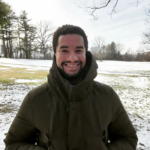 “I believe that freedom of expression is an important pillar of modern societies. It is not, however, something that can simply arise and exist all on its own. Freedom of expression has to be constantly supported and defended. Frankly, the attacks on free speech in recent times are alarming—and that ranges from outright censorship and social media witch-hunts to the more subtle ways that online algorithms organize what kinds of posts are seen or not seen. I’m happy that it is our theme this academic year because I think a lot of these problems are only going to grow. I hope that some good ideas and outcomes emerge out of the ongoing discussions on campus.”
“I believe that freedom of expression is an important pillar of modern societies. It is not, however, something that can simply arise and exist all on its own. Freedom of expression has to be constantly supported and defended. Frankly, the attacks on free speech in recent times are alarming—and that ranges from outright censorship and social media witch-hunts to the more subtle ways that online algorithms organize what kinds of posts are seen or not seen. I’m happy that it is our theme this academic year because I think a lot of these problems are only going to grow. I hope that some good ideas and outcomes emerge out of the ongoing discussions on campus.”
Jason Ludwig, science and technology studies doctoral candidate
…being open to reading diverse perspectives and talking to all groups
 “To me, freedom of expression means that we should be open to reading diverse perspectives and talking with people of all societal groups. A lot of the work in my discipline is concerned with fact-checking and preventing misinformation and has resulted in certain news media sources being labeled as being ‘low factuality’ or ‘unreliable.’ While this work has been instrumental in preventing people from adverse outcomes of believing in conspiracy theories and false claims, we must not completely exclude information from these sources – even if someone says something that is deemed ‘misinformation,’ we can still learn something valuable about how others think.”
“To me, freedom of expression means that we should be open to reading diverse perspectives and talking with people of all societal groups. A lot of the work in my discipline is concerned with fact-checking and preventing misinformation and has resulted in certain news media sources being labeled as being ‘low factuality’ or ‘unreliable.’ While this work has been instrumental in preventing people from adverse outcomes of believing in conspiracy theories and false claims, we must not completely exclude information from these sources – even if someone says something that is deemed ‘misinformation,’ we can still learn something valuable about how others think.”
Sterling Williams-Ceci, information science doctoral student
…essential for any institution and its members to feel safe and heard
 “I believe freedom of expression is essential for any institution and for the members of the institution to feel safe and heard. An academic institution is a powerful place where a lot of changes can be made because it is a place where great minds are at work and people are constantly trying to improve the status quo. I believe it’s important to ensure that freedom of expression and speech need to be upheld for positive change and dialogue to occur.”
“I believe freedom of expression is essential for any institution and for the members of the institution to feel safe and heard. An academic institution is a powerful place where a lot of changes can be made because it is a place where great minds are at work and people are constantly trying to improve the status quo. I believe it’s important to ensure that freedom of expression and speech need to be upheld for positive change and dialogue to occur.”
Sharada Gopal, biomedical and biological sciences doctoral candidate
…freedom to physically/visually/aurally/temporally disrupt the public sphere
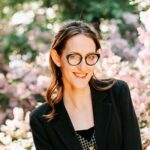 “Freedom of expression requires freedom to physically/visually/aurally/temporally disrupt the public sphere. Freedom of expression requires freedom to become an inconvenience to systems of power and to business as usual. Freedom of expression requires freedom to create theatrical protest movements and experiment with new ways of being in public together. Freedom of expression on campus requires being allowed to make such experimentations a part of course work and extracurricular culture without fear of retribution from campus authorities or administrative policies.”
“Freedom of expression requires freedom to physically/visually/aurally/temporally disrupt the public sphere. Freedom of expression requires freedom to become an inconvenience to systems of power and to business as usual. Freedom of expression requires freedom to create theatrical protest movements and experiment with new ways of being in public together. Freedom of expression on campus requires being allowed to make such experimentations a part of course work and extracurricular culture without fear of retribution from campus authorities or administrative policies.”
Kelly Richmond, performing and media arts doctoral candidate
…a precious thing and a human right
 “Freedom of expression is a precious thing, but it should not be defined by its scarcity. It’s a human right. We live in a world that limits many people’s freedoms, until entire swaths of society must fight for what they deserve. These limits are unequally applied, least among those who have money and power.
“Freedom of expression is a precious thing, but it should not be defined by its scarcity. It’s a human right. We live in a world that limits many people’s freedoms, until entire swaths of society must fight for what they deserve. These limits are unequally applied, least among those who have money and power.
At Cornell, freedom of expression means reminding ourselves and our leaders that this isn’t normal. The world was built by people who took the power to build it. And it can be changed, if the people in power commit to that. Freedom of expression is a right, but power is a privilege.”
Katherine Ally Zaslavsky, sociology doctoral candidate
